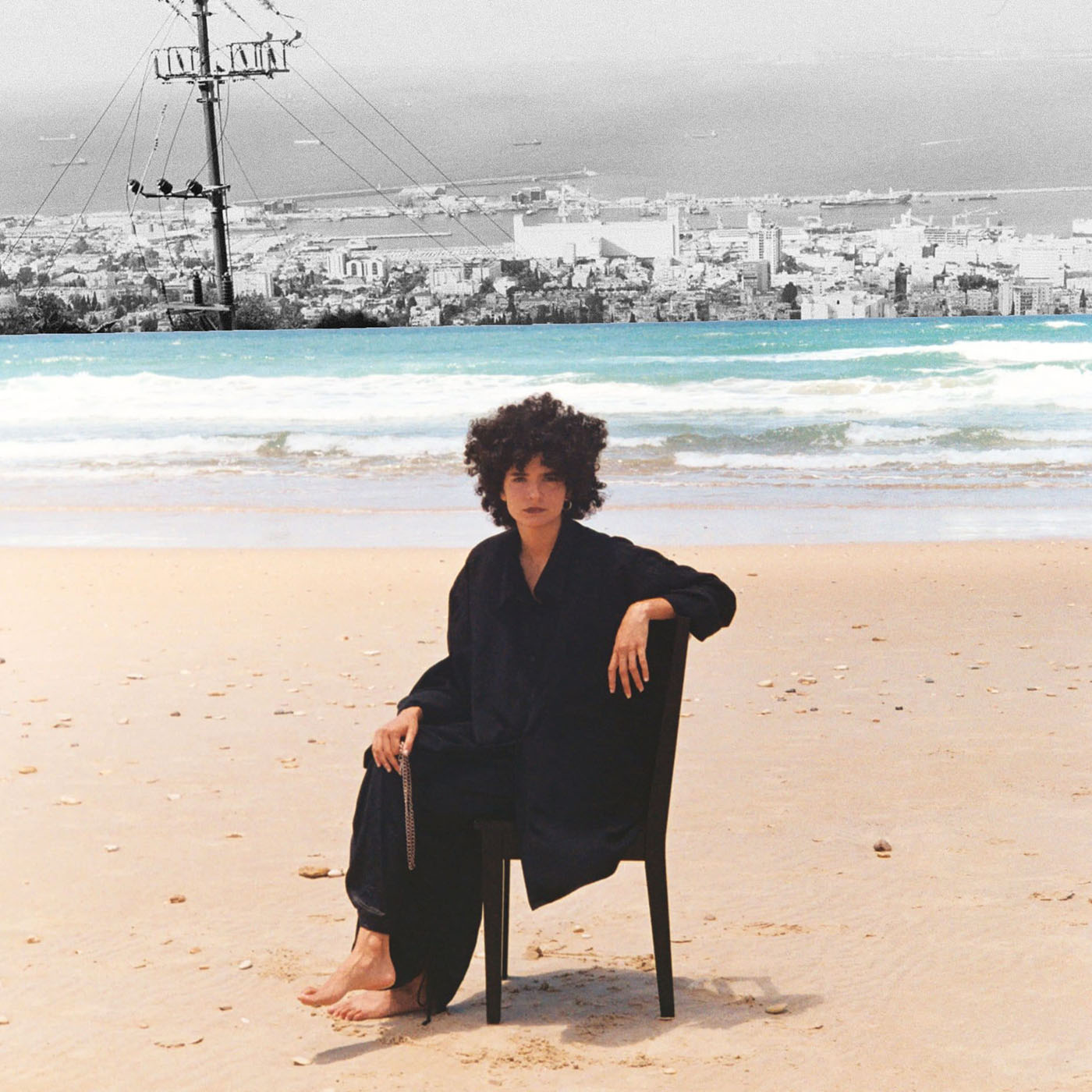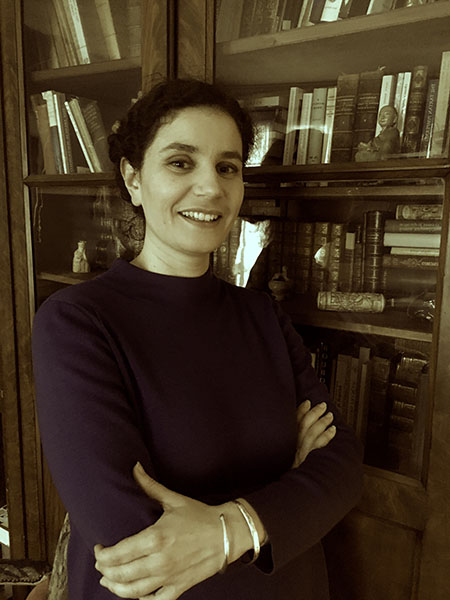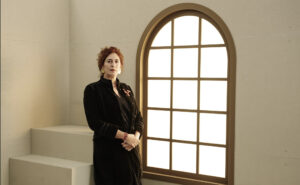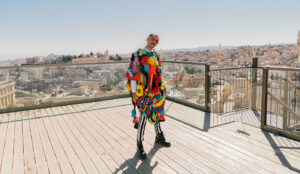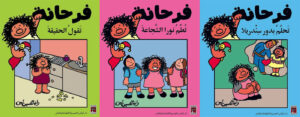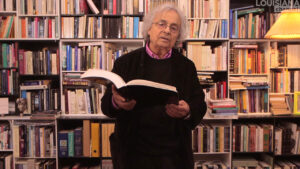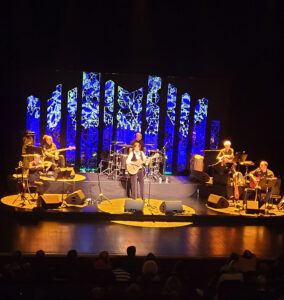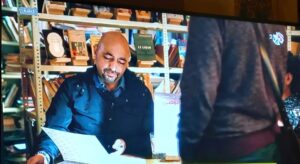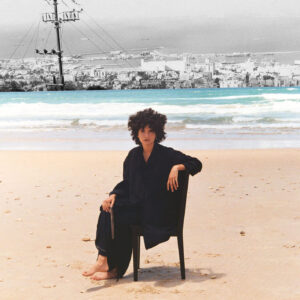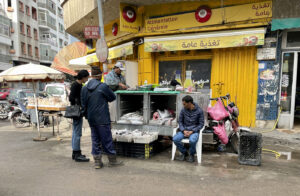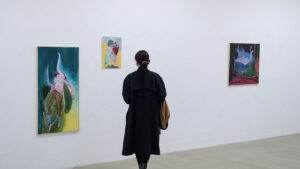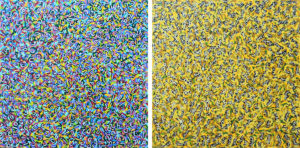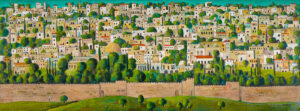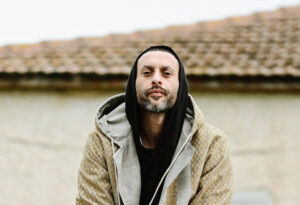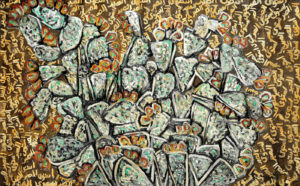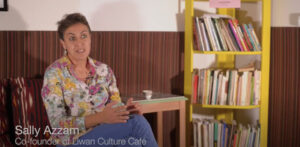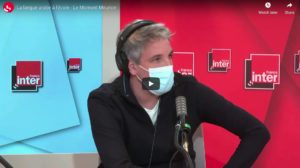Rasha Nahas has rocked the English-speaking world with a successful first EP and a first LP. She’s back with an album of songs written in her native Arabic.
Melissa Chemam
The singer-songwriter and multi-instrumentalist Rasha Nahas is already a well-known rock artist, and an intercontinental performer. Her label describes her sound as “moving seamlessly between the resonances of early rock ’n’ roll and the reckless echoes of free jazz.” Her distinctive approach to songwriting, storytelling and performance has been praised on three continents. She moved from Haifa to Berlin in 2018, after recording a few songs in England in 2016, then a first album, Desert, released in 2021. She is now back in January ’23 with her new album, Amrat (“Sometimes”), in which she explores themes of home, belonging, doubt, freedom and her relationship with her mother tongue, Arabic.
“I have two realities, in a way,” Nahas says. “One on the road, playing and traveling constantly, moving and being with people and performing, being very active. And the other one here in Berlin, trying to slow down. It’s a very different rhythm.”
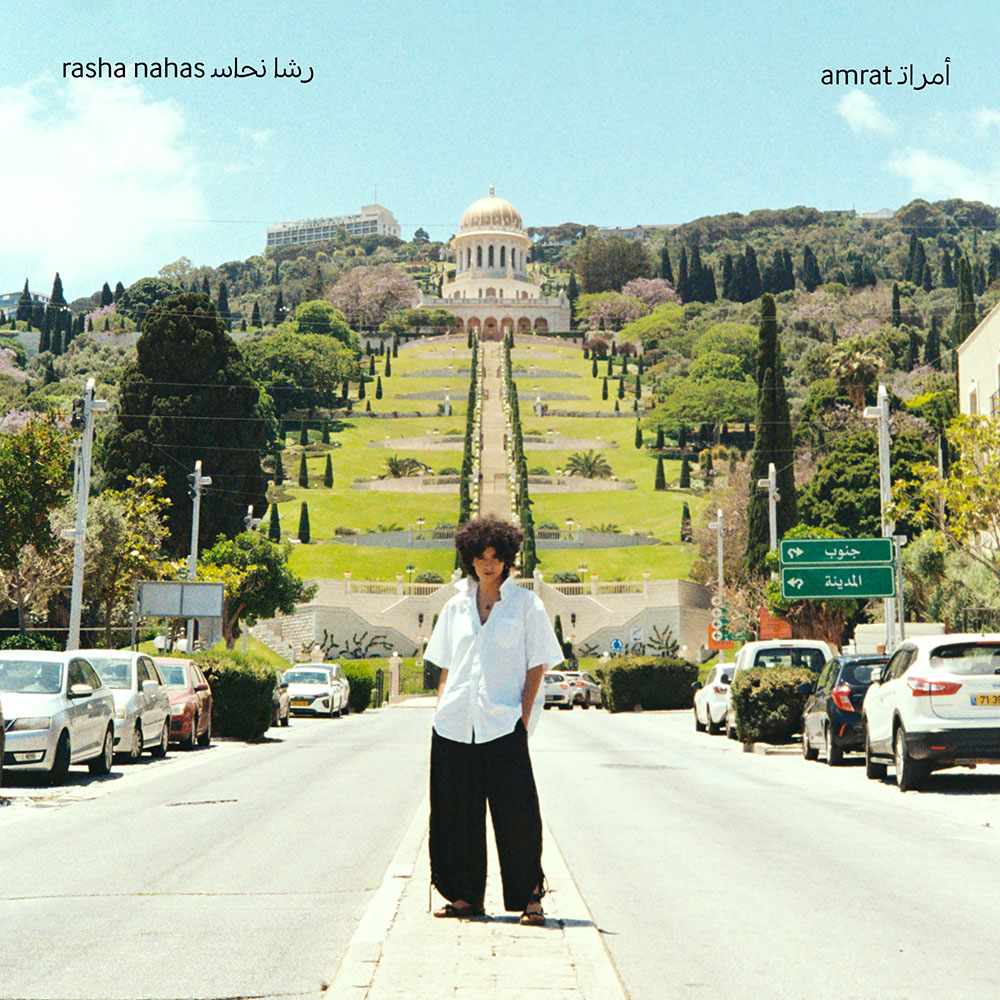
She loves Berlin, a place where she has found her own space to be creative, as have more and more Arab artists in the German capital. She works on her music in her studio, but also as a composer for film and theater productions, in English, including writing a range of pieces for Berlin’s performing arts scene and Hamburg’s Thalia Theater. The day we speak, she just had her first German lesson. “I can now sing a song in German!” she rejoices. [See TMR’s BERLIN issue. ED.]
Born and raised in Haifa, a city in Israel with a thriving Palestinian cultural scene, the multi-instrumentalist and singer-songwriter started her relationship with music at the early age of 10, as a classical guitarist. [Haifa has a large Palestinian minority, but it is a Jewish-majority city. The most populous Palestinian city within the Green Line is Nazareth. —ED] In her teens, she began writing and playing her own songs, carving out a place for herself on Haifa’s underground scene. In 2016, at only 21, Nahas released her first EP, Am I, produced between Haifa and Bristol, UK.
The EP, whose songs, including the popular track “The Skies Don’t Care,” were written and performed in English, quickly gained attention.
“It was easier to express myself in English then,” Nahas admits. “I began writing songs in the middle of a process to understand who I was, and a lot of the examples that I had were from contemporary jazz music, rap, rock, opera, musicals, etc., all in English. They were all from role models I could imitate. You listen to them and it influences you… And there was so much diversity. Also in Arabic, I felt like it was harder to write, say, a love song, for instance.”
In previous interviews, including one in the Guardian, she has admitted that English was a way to escape from seeing and hearing Hebrew — “the language of the oppressor” — everywhere in her daily life as a Palestinian in Israel.
The release of her first EP Am I was quickly followed by a tour that included compelling live performances in Europe, South America, the UK and West Asia, including shows at SIM São Paulo, Midem, Sziget, Palestine Music Expo and at Glastonbury — arguably the biggest music festival in the world — in 2017. That’s how her fanbase came to transcend historic Palestine.
Nahas then began to think about living abroad. In 2017, she left Haifa for Berlin, traveling back and forth until 2018.
“After playing at Ramallah Music Expo and at Glastonbury, I came to Berlin,” she says. “I asked for a visa and when I got it, I decided to stay. It’s been five years now… I didn’t really rationalize my decision; I just followed my intuition. I believe it’s always right, like following a subconscious calling. Nothing of what I do is planned. I was also still very young, 20, 21 years old. I would now think a lot more before making such decisions.”
All the while, Nahas was writing songs to create a first album. She wanted to capture the atmosphere and intensity of her live performances. She and her new band recorded some of the songs in just one take.
The debut album, Desert, including the eponymous lead song, was released in early 2021. It chronicled a “personal and political journey from Palestine to Germany and back again,” as she describes it.
The opus secured physical distribution across stores in Germany via Cargo Records. It was then featured on top global Spotify playlists, and she was selected to take part in Sawtik, a Spotify Arabia campaign that highlights emerging Arab female talent and includes billboard placements in major cities across the Arab world, including Jeddah, Riyadh, Casablanca, Rabat and Cairo.
Following Desert, she also made a special guest appearance at the Berlin International Film Festival’s Teddy Awards, and performed at Brighton’s The Great Escape Festival.
She is now back with a second album, her first written and performed entirely in Arabic, titled Amrat, which was composed during the pandemic’s lockdowns.
“This album feels very special to me,” she tells me, “as my first in Arabic. It’s my mother tongue, so it makes me feel more relaxed.” In English, now, she feels like she is speaking to an audience that is disconnected from her origins. “The Arabic language breaks these things. It’s also a very personal album, while my first was more political.”
She also tapped into the Palestinian music scene. Before she moved to Berlin, she points out, “I was good friends with people like Haya Zaatry, and met a lot of musicians with her,” Nahas says. “I had a band with friends and they came from this alternative Arabic underground universe. It became more natural, little by little, for me to perform there and to write songs in Arabic.”
In our interview, Nahas explains her impetus further:
I wrote this album during the pandemic, feeling longing and very nostalgic. It also has a duality of sounds, because I had a hand injury, so I couldn’t play the guitar as much as I used to, and had to use a computer instead. There is also a duality between the urban and the rural: I was personally under lockdown, facing an empty city, Berlin. I was taking the underground some days, dreaming of the countryside; I was longing for its landscapes.
Nahas also used Moroccan drums and electronic sounds: “This was just where the songs were asking to go.”
The album “traverses the boundaries between East and West,” as Rasha and her band wrote in the press presentation, “but there are also spaces in between.” Those “third spaces” have an element of freedom, and they flow throughout the melodies and narrative of Amrat.
She’s been touring again since August 2022, in England, Morocco and Palestine, mostly. Her next dates will be in Abu Dhabi, Germany, Austria, Jordan and France, with a concert at l’Institut du Monde Arabe on March 18th.
Despite the appeal of travel, what Nahas seems to love the most is performing at home, in Palestine. “It’s actually great,” she says, “and it’s important to play back home, for my family, my community; it’s the best. When I’m on tour there, there’s a lot of driving, I see many faces, but it’s always familiar, whether in Haifa, Ramallah, Jaffa or Bethlehem. But there are also lots of checkpoints, and separation walls… I mean, it’s the experience of a place under apartheid. My friends from the rest of the world ask me a lot of questions about it. It’s not a normal situation like everywhere else I go.”
For now, Rasha Nahas finds her balance by sharing her time between her two cities, and by touring. Living in Berlin definitely gave her the detachment and confidence to reconnect to her mother tongue, and she hopes her fans will appreciate the move.
Amrat brings a fresh perspective on traditional and alternative Arabic music genres; it’s definitely an innovative album. Give it a listen!



